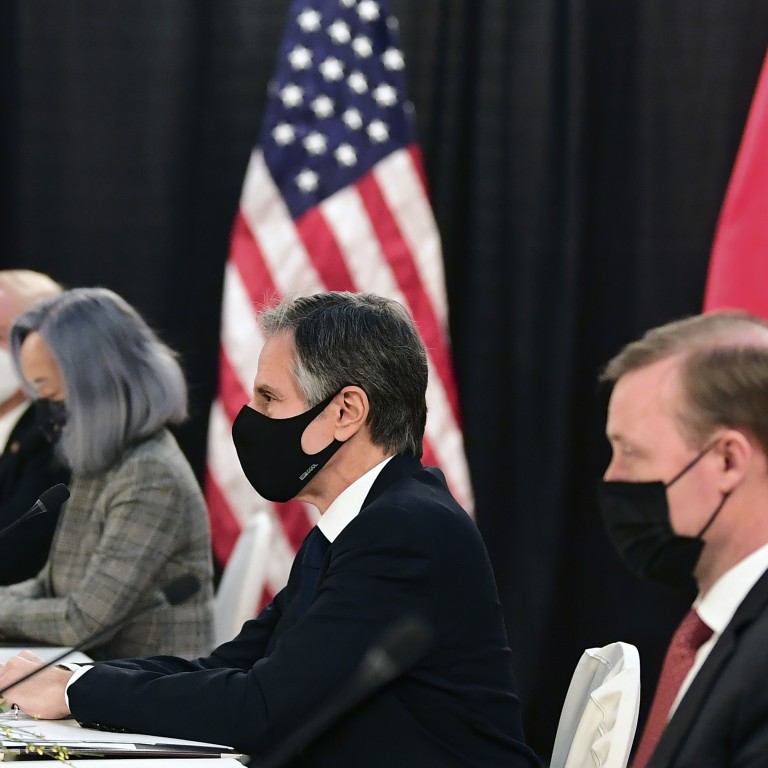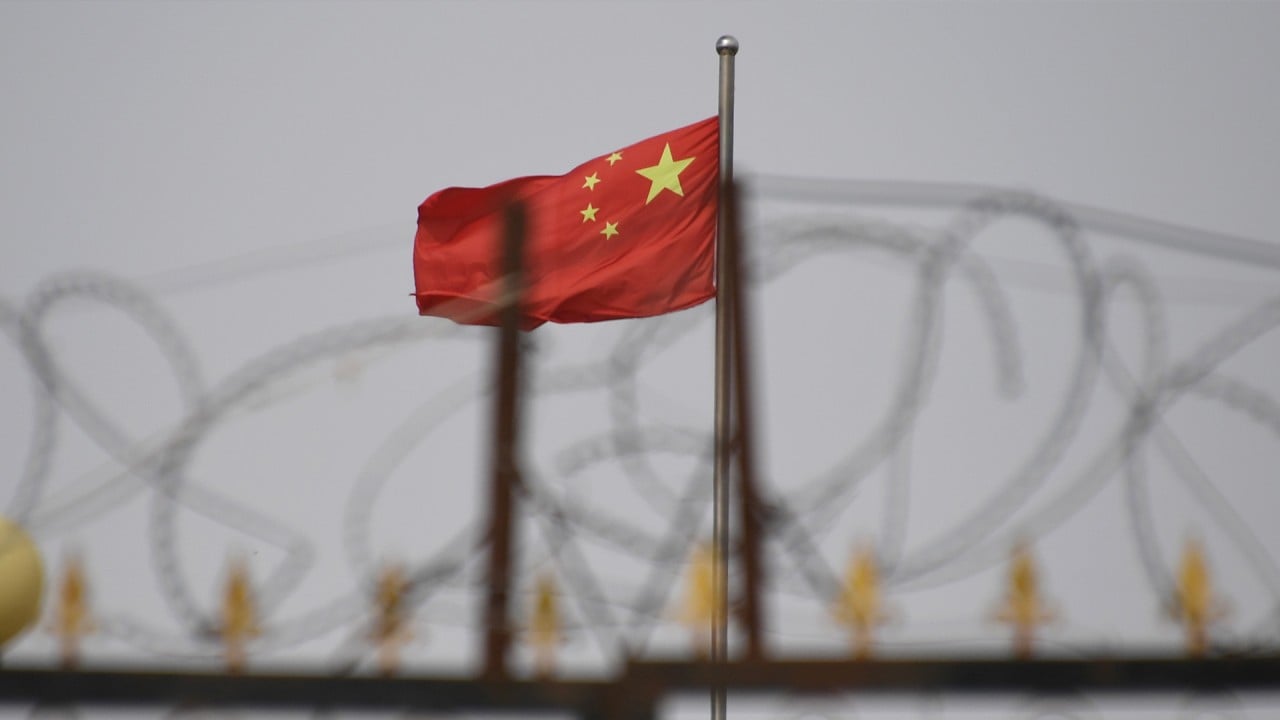
US, China look to shore up ties with allies after Alaska clash
- Antony Blinken tells Nato meeting the alliance should be focused on some of the challenges Beijing poses, while Joe Biden will join EU talks
- Meanwhile, Wang Yi and his Russian counterpart Sergey Lavrov agree to work together against sanctions, and a Middle East tour is next
US President Joe Biden will join the European Union’s minister meetings by video link on Thursday to discuss revitalising ties between the US and Europe, along with shared foreign policy interests including on China and Russia.

02:23
Gloves off at top-level US-China summit in Alaska with on-camera sparring
“[Western powers] should know that the days when they can arbitrarily interfere in China’s internal affairs by making up stories and lies are long gone,” Wang was quoted as saying during the talks.
The two foreign ministers also addressed their respective relations with the US, calling on Washington to “reflect on the damage it has done to global peace and development in recent years, halt unilateral bullying, stop meddling in other countries’ domestic affairs and stop forming small circles to seek bloc confrontation”, according to a statement from China’s foreign ministry.

Wang will also begin a tour of the Middle East on Wednesday until March 30, in a bid to boost ties in the oil-rich region that is key to China’s energy security. The foreign minister will travel to Saudi Arabia, Turkey, Iran, the United Arab Emirates, Bahrain and Oman.
Liu Weidong, a US affairs specialist from the Chinese Academy of Social Sciences, said it was not clear whether China’s recent foreign policy activities were related to the combative environment at the Alaska talks since the meeting with Russia’s foreign minister was likely planned well in advance.
Alaska summit: what the US and China agree on, and what still divides them
But Liu said Biden’s government had already made clear it wanted to coordinate with allies, and the Alaska meeting may have hardened its inclination to do so, faced with a more aggressive Beijing that was unwilling to make concessions.

03:36
Beijing hits back at Western sanctions against China’s alleged treatment of Uygur Muslims
Washington has made clear that it will work closely with allies to address its strategic focus on China, with State Department spokesman Ned Price releasing statements on Tuesday backing the concerns of allies Canada and the Philippines.

